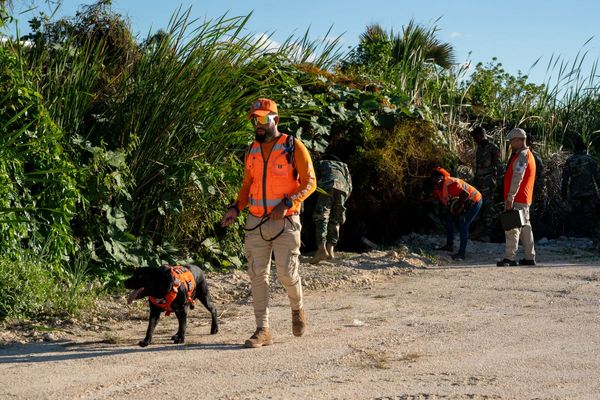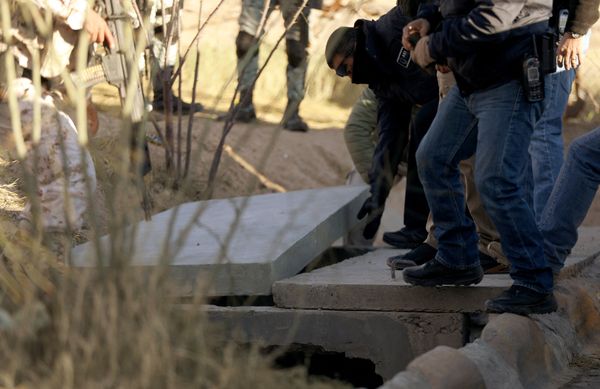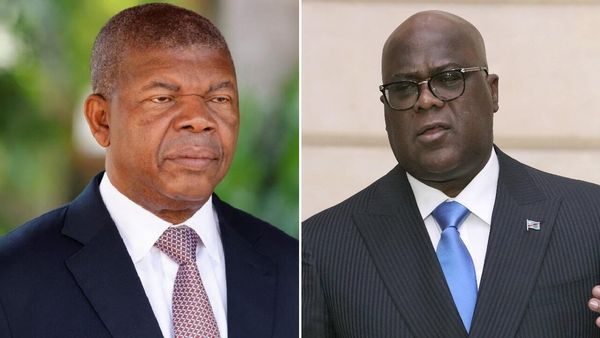
From a distance, it feels like Oscar Piastri was destined for the pinnacle of motor-racing. “My dad’s dad and my mum’s dad, my pop and my granddad, they were both mechanics,” the 20-year-old Australian says. “And my dad – his business is a car-tuning business. So I think it was naturally running in the family.”
When Piastri was six, his father Chris returned from a business trip with a remote-controlled monster truck. “I was just fanging around with that in the backyard,” he says. Remote control racing led to go-karting, which led to Formula Four, Three, Two and now, this year, a reserve driver spot with BWT Alpine in Formula One. “That [monster truck] led to the journey I have taken so far.”
But for all it may seem as if Piastri was preordained for motor-racing greatness, it has taken considerable sacrifice – and millions of dollars – for that goal to be within reach for the Melbourne-born driver. And despite winning the F3 and F2 championships in consecutive seasons, the Australian has not yet made it to the heights of F1.
“It has been an awesome run in the junior categories,” he says. “I think the results speak for themselves.” But in the cut-throat world of motor-racing, results alone are not enough. Ahead of the season opener next month, an F1 seat remains so near, yet so far for Piastri. The prospect of becoming the 18th Australian F1 driver in history, and joining compatriot Daniel Ricciardo on the grid, eludes him – for now.

The late afternoon sun shines on Piastri as he speaks over Zoom, from a backyard in Portsea on Victoria’s Mornington Peninsula, at the end of his summer break. A return to Europe beckons (he is based in Oxford, England) ahead of his first year globe-trotting with the international circus that is Formula One. The Australian intends to give it his all; he is a few minutes late to the interview, having been sprinting up and down the nearby sand dunes by way of pre-season training.
“I’m looking forward to the challenge,” he says. “It’s going to be a different year to what I am used to, as I won’t be doing any racing. It is a new challenge, another step towards my goal of becoming a full-time F1 driver.”
F1 reserve drivers spend most of their time working with the team to support the two primary drivers: on simulators fine-tuning the car, doing testing, sometimes driving in practice sessions. But Piastri will only get an opportunity to race if one of his teammates, Fernando Alonso and Esteban Ocon, is sick or injured. Which means that after spending his teenage years racing as much as possible, 2022 will be an adjustment.
“There’s still a lot of work I can do behind the scenes, trying to learn as much as I can about the F1 world,” he says. “How the [race] weekend works, how the season schedule works with all the flying around, getting used to different time zones and so on.”
Having won F2 last year, there was nowhere for Piastri to go but up; champions are not permitted to compete again. Yet with only a handful of seats up for grabs across the 10-team, 20-driver grid, Piastri always knew that a year on the sidelines was likely. In the end, the final spot – with Alfa Romeo – was taken by Chinese driver Guanyu Zhou (despite Zhou having finished third, behind Piastri, last year).
Motor-racing is not cheap. In an interview with The Age last year, Chris Piastri estimated that his family, together with sponsors and supporters, had put about $6m into Piastri’s pursuit of his F1 dream. When the driver was just 15, Piastri senior was outlaying half a million dollars as his son travelled on the international go-karting circuit. The costs only increased: $1.5m to race F3, and a similar amount for his lone season in F2. (Piastri senior is the founder of an automotive software company.)
Piastri speaks openly about this substantial investment in his future. “My parents never, ever, put pressure on me from a financial point of view,” he says. “But I’m quite a realistic person. I was aware of how much money was being spent. I never felt guilty, I guess … I was extremely grateful to be given that chance, that opportunity. A lot of people in life and in racing never get that kind of opportunity. So I felt I owed it to myself, and to my parents and other people investing in me, that I should do well.”
He has done exceptionally well to date. “I don’t think the pressure ever really mounted up on me, but of course there were a few moments where you go: ‘This is a lot of other people’s money. So this first reserve driver role, while I haven’t made it to my ultimate goal yet, it was quite a relief to be getting paid, to finally turn professional.
“I’d be lying if I said that [$6m sum] wasn’t an extraordinary amount of money. The entry barrier to F1 is very, very high.”
The corollary of the costs is that, even at the highest level, the financial backing behind a driver can be the difference between earning a seat, or not. Zhou is expected to bring Chinese commercial interest to the sport; Nikita Mazepin and Lance Stroll both race for teams bankrolled by their fathers.
“This year is a tricky situation because there weren’t many seats available,” Piastri explains. “In Zhou’s case, specifically, it’s a very big commercial drawcard, for the sport, and sponsors, to have the first Chinese driver in F1. I know Zhou got quite a lot of criticism for being in F1 – and I thought that was quite unfair [Piastri has been vocal in defending Zhou]. I knew that we couldn’t bring that kind of money.”
The Victorian concedes that being Australian, he could never compete with the commercial potential of a Chinese driver. Nor, says Piastri, would he want to pay to play. “I want to get to F1 purely on merit, not because we could buy myself a seat. It’s been part of the game for a long-time, but I didn’t want to get to F1 because I paid to get there. I wanted to get there because I had the results.”

Most observers believe that it is only a matter of time before Piastri, who turns 21 in April, is driving in F1. He will spend this year learning from Ocon and Alonso; the latter, a two-time champion, is expected to retire at the end of the season, which may leave an opening. “Working with Fernando, it’s a great privilege,” Piastri says. “Certainly I can learn a lot off him this year. I want to learn as much as I can for when it’s my turn to get in the race seat.” Piastri is also guided by his agent, Mark Webber, the Queanbeyan-born driver who collected nine F1 wins during a glittering career.
In the F1 paddock, Piastri will find himself alongside a crop of talented young drivers that have considerably lowered the grid’s average age. The likes of Ocon, Ferrari’s Charles Leclerc, Haas’s Mick Schumacher, McLaren’s Lando Norris, Mercedes driver George Russell and Yuki Tsunoda of Scuderia AlphaTauri are all 25 or younger. “These guys are proving that they can perform almost straight away – they’re already fighting for wins,” says Piastri. “Every time that happens, it opens the door for more young guys, such as myself.”
The most prominent young star is, of course, Max Verstappen, the 24-year-old F1 champion. The Red Bull driver beat rival Lewis Hamilton to the 2021 title in controversial fashion in Abu Dhabi in December. Months on, the drama of that race still lingers – governing body the FIA recently moved aside its race director, Australian Michael Masi, in an attempt to end the furore.
Piastri is diplomatic when asked about the incident. “It definitely was very hectic,” he says of the final race. “I don’t really have much of an opinion, to be honest, I think maybe the rules could have been followed a bit better. But I for one am happy that the race actually got underway again for a lap, rather than finishing under safety car. I think there would be a much more negative reaction if the world championship … was decided under safety car. There you go – I won’t say any more on that.”
After the dramatic conclusion to last season, there will be much anticipation when the F1 begins in mid-March in Bahrain, before it heads to Saudi Arabia and then Melbourne, for the first-time since the pandemic began. Even on home soil, Piastri will be sitting on the sidelines. “It’s never ideal not to be racing, but it’s just the way the cards have fallen,” he says. For now, at least. “I feel like I deserve a chance in F1.”







